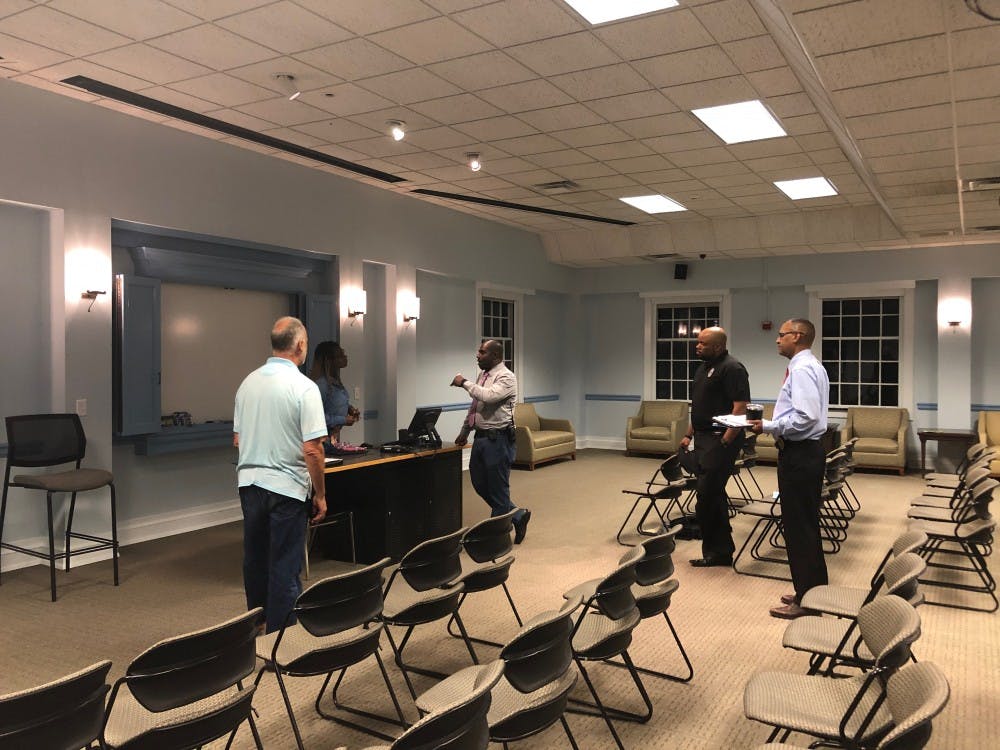Conversations about trust and the University police continue in the aftermath of Silent Sam. The Campus Safety Commission held a listening session Monday to discuss concerns with campus police officers.
The meeting was open to the public. Four UNC Police officers were present, along with two members of the commission. A total of seven people attended the meeting.
The Campus Safety Commission was created in April by Interim Chancellor Kevin Guskiewicz to address the lasting impacts of protests on relationships between University police and members of the campus community. The commission's 20 members include students, faculty and community members.
In the meeting Monday, commission members Frank Baumgartner, a political science professor, and undergraduate student De'Ivyion Drew talked with police officers and other campus security personnel about existing attitudes of mistrust toward University police and the future goals of the police department.
Baumgartner and Drew also voiced concerns shared by members of the campus community in previous listening sessions.
Chief of Police David Perry said he disagreed with the use of the phrase "crisis of trust" to describe the environment on UNC's campus. Perry said that, compared to other tumultuous situations on college campuses throughout the country, the phrase was too "high of a level" to match the action of University police surrounding Silent Sam.
"I've seen students interact with police in a positive way, I've seen them go out and discharge their duties, I've seen them do things that doesn't rise to the level, in my mind, of a crisis of trust," Perry said. "So, I think that's a misnomer, that kind of paints the picture unfairly against the men and women who are out here doing the work for the campus community."
Sgt. Ray Oliver attributed the mistrust from students to a lack of communication from UNC Police to the general campus community. However, Oliver said he is hopeful new University police leadership will allow for a better dialogue.
Oliver specifically referenced Chief Perry, who assumed his post in September.




